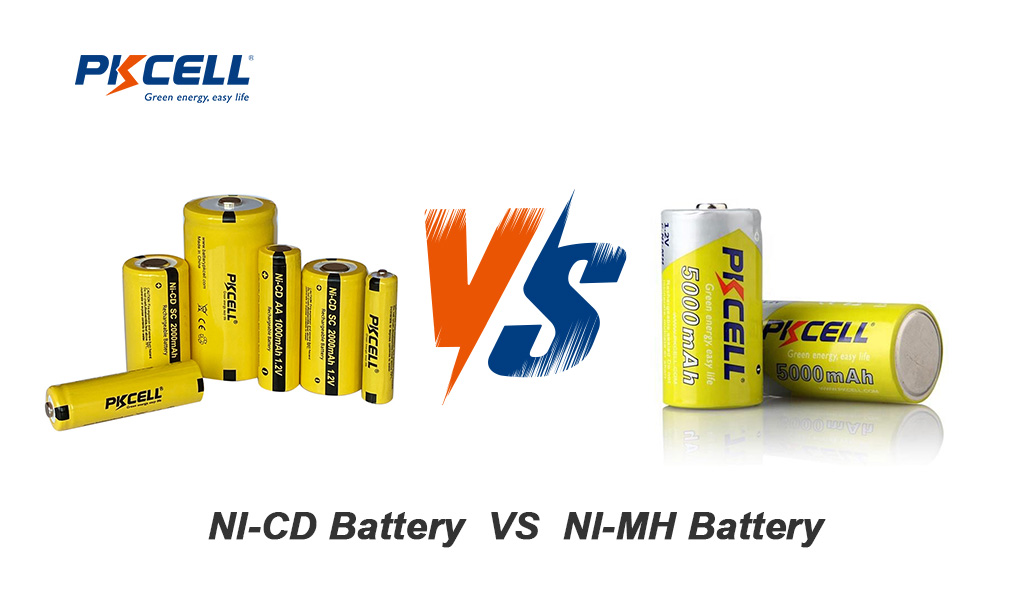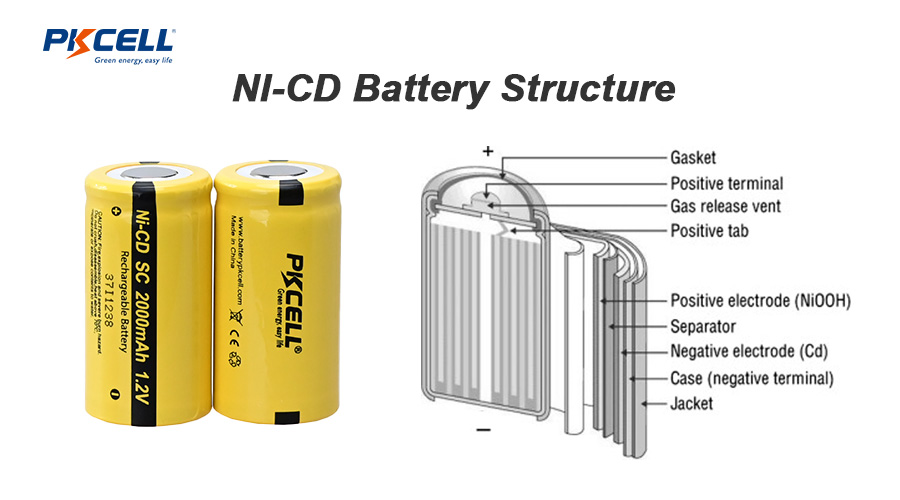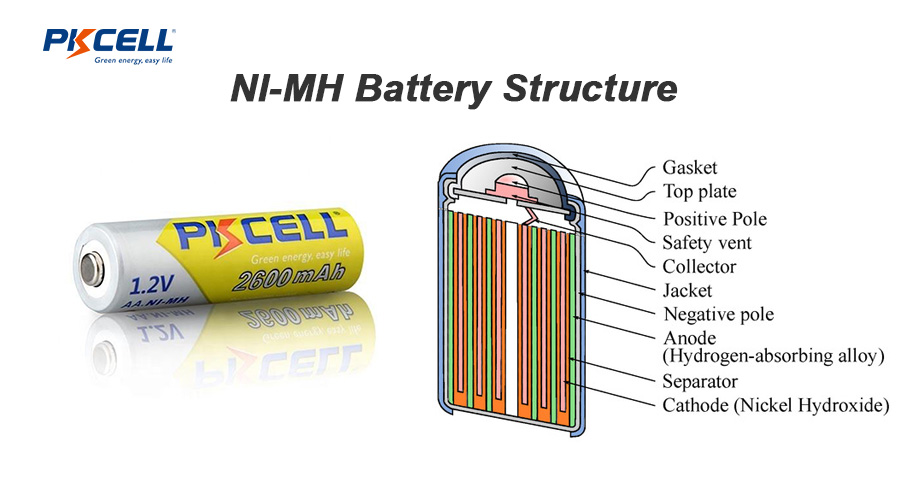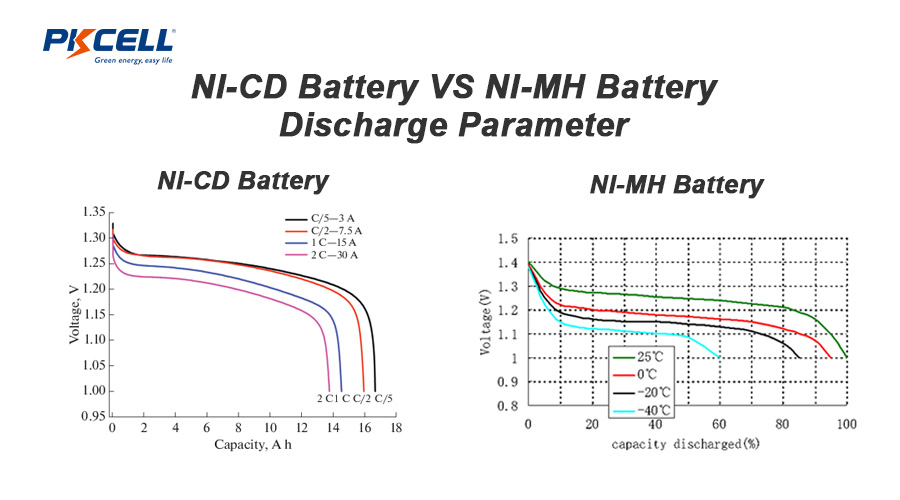Key Highlights
- NiCd batteries use cadmium negative electrode plates. This makes them tough and helps them work well in extreme temperatures.
- NiMH batteries have more energy density. They store more energy, which helps to extend battery life.
- The memory effect is a problem for NiCd batteries and can hurt how well they work. NiMH batteries do not have this problem, which lets them discharge the same way every time.
- NiMH batteries are better for the earth because they do not have toxic cadmium like NiCd batteries.
Introduction
Are you trying to see which rechargeable battery is better for your device, NiMH or NiCd? Both types do almost the same thing, but they are not the same. NiCd batteries use nickel hydroxide and cadmium. These batteries keep working well, even when the situation is tough. On the other hand, NiMH batteries have hydrogen ion electrodes instead. NiMH batteries give more energy density and are often better for the planet. In this guide, we will talk about the big differences between NiMH batteries and NiCd batteries. We will help you pick the most suitable one for you.
What are NiCd Batteries?
Nickel-Cadmium (NiCd) batteries, which you may also hear called NiCad batteries, are one of the first rechargeable batteries that people made. Inside these NiCd batteries, you will find that the positive electrode plate is made from nickel hydroxide. The negative side is made from cadmium plates. A separator is used to keep both plates apart, and potassium hydroxide acts as the electrolyte, which lets electricity move inside the battery. All these parts are put together in a metal spiral shape called a jelly roll. This design lets the battery produce a lot of current and work well for many uses.
NiCd batteries are used a lot in industrial tools, medical equipment, and toys. They last a long time. They also work well even when the temperature gets very high or very low. Their power stays steady when you use them. Because of all this, they can be a good choice when you want something strong and reliable.
NiCd Battery Advantages and Limitations
Advantages of NiCd Batteries:
- Long Lifespan: NiCd batteries last longer than many other rechargeable batteries.
- High Discharge Rate: They provide high power output, making them ideal for high-drain devices.
- Durable: NiCd batteries are more resistant to physical damage.
- Wide Temperature Range: They work well in both hot and cold environments.
- Rechargeable: Can be reused many times, saving money.
Limitations of NiCd Batteries:
- Memory Effect: They lose capacity if recharged before fully drained.
- Toxic: They contain cadmium, a harmful metal that is difficult to dispose of.
- Self-Discharge: They lose charge when not in use, though not as quickly as NiMH.
- Lower Capacity: Compared to NiMH, they hold less energy.
What are NiMH Batteries?
Nickel-Metal Hydride (NiMH) batteries became popular in the late 20th century. People started to use them because they are better for the environment than NiCd batteries. NiMH batteries use nickel hydroxide as the positive part. The negative electrode plate is a hydrogen ion negative electrode plate. The liquid inside the batteries is potassium hydroxide, which is an alkaline liquid. These NiMH batteries brought new ways to store energy and to hold more power than NiCd batteries.
You can find NiMH batteries in a lot of places now. They are used in automotive batteries and digital cameras, and digital devices. NiMH batteries have more energy density than NiCd ones. This gives you longer battery life, so your devices work longer before you need to charge them again. This is good for people who use their devices all the time.
NiMH Battery Advantages and Limitations
Advantages:
- Higher capacity: NiMH batteries can store more power. You get longer battery life with them.
- Environmentally friendly: NiMH does not have cadmium, so it is safer for the environment.
- No memory effect: Unlike NiCd, they keep working well even if you do not let them fully discharge before charging. NiMH batteries do not lose their capacity for charging and discharging often.
- Wide availability: NiMH batteries come in most common AA and AAA sizes. They are easy to find.
Limitations:
- Short lifespan: NiMH batteries lose some energy over time, even when you are not using them.
- Temperature sensitivity: NiMH batteries do not work well in very hot or very cold weather.
- Slower charging: NiMH batteries make more heat when charging. Sometimes you need a special charger for safe charging.
NiCd vs NiMH: Key Differences
NiCd batteries have cadmium in them, and that is not good for the planet. NiMH batteries use hydrogen-absorbing alloys instead, so they are safer for the environment. NiMH batteries also win when it comes to energy density and capacity. This means the batteries last longer on your devices. But NiCd batteries work well even in extreme temperatures. So, if you need something tough, NiCd batteries can be the right pick.
Performance Comparison
NiCd batteries work well when you use them at high discharge rates. They also do fine in low temperatures and in hard places, like when you use them in tools or outdoors. But NiCd batteries have a memory effect. This makes them hold less charge after some time of using them.
NiMH batteries help your devices last longer. They can hold more energy than some other batteries, so they are good for digital devices or when you need something to work for a longer time. The main thing you need to know is that NiMH batteries lose their charge fast if you don’t use them. So, you have to use these NiMH batteries often or recharge them to get good battery life.
| Feature | NiCd Batteries | NiMH Batteries |
|---|---|---|
| Discharge Rate | High | Moderate |
| Temperature Tolerance | Performs well | Less effective |
| Memory Effect | Yes | No |
| Energy Capacity | Lower | Higher |
| Best Use | Tools, outdoor applications | Digital devices, prolonged use |
| Charge Retention | Retains charge longer when not in use | Loses charge quickly if not used |
Environmental Impact and Recycling
The effect of rechargeable batteries on the environment is a big concern. NiCd batteries have something called cadmium, and it is toxic. This can be harmful to the environment. You must recycle these batteries the right way, otherwise they can make the soil and water dirty.
NiMH batteries are made with safe materials like hydrogen-ion alloys. They are better for the earth. You can safely throw away NiMH batteries, but you can also take them to be recycled. This makes NiMH batteries a better and greener choice than NiCd batteries.
Conclusion: NiCd or NiMH—Which is Right for You?
When you want to pick between NiMH batteries and NiCd ones, you have to look at what you will use them for. NiCd is strong, and it can work well in extreme temperatures. This kind is a good choice for factories or when you use the battery outside. NiMH batteries give you more energy. They last longer. They are also better for nature. NiMH batteries work best in electronic devices that need steady power. The best battery to get depends on your device and whether you care about being eco-friendly. If you have other questions, we are here to offer a free consultation!
Why Choose PKCELL NiCd and NiMH Batteries?
PKCELL is a trusted choice for buying NiCd and NiMH batteries because of our decades of experience and commitment to quality. With over 20 years in the battery industry, we ensure that our NiCd and NiMH batteries deliver long-lasting power, reliable performance, and fast recharging. Our NiCd and NiMH batteries are perfect for a variety of applications, including power tools, cameras, and other high-drain devices. We use advanced technology and strict quality control processes to ensure every battery meets international standards like ISO9001, CE, and RoHS. When you choose PKCELL, you can trust you’re getting a durable, efficient, and environmentally friendly power solution.
Frequently Asked Questions
Can I replace NiCd batteries with NiMH in my devices?
Yes, you can use NiMH batteries in place of NiCd batteries in most devices. Be sure that the size and voltage are the same. NiMH batteries may need a different charger, as their charging and discharge details are not the same as NiCd. Check that everything fits and works before using the NiMH batteries to get the best results.
In what applications are NiCd batteries still preferred over NiMH?
NiCd batteries are still preferred in applications requiring high discharge rates, like power tools and emergency lighting. They perform better in extreme temperatures and have a longer shelf life. Additionally, NiCd’s robustness makes it suitable for applications with frequent charging cycles, where reliability is crucial for performance.
Post time: Jun-05-2025







